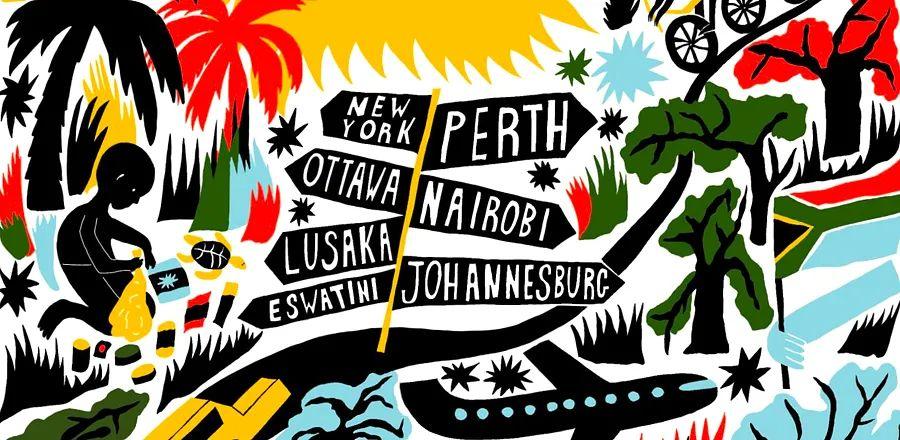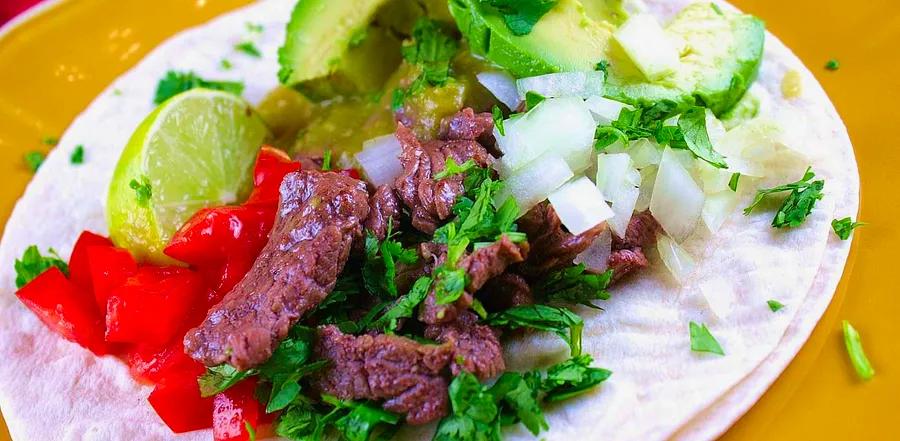Two Kids, One Border Closure: The Impact of Australian Lockdowns on a Global Family

I am the offspring of a freedom fighter and an accountant. My idealistic father fled South Africa at 19 due to his anti-apartheid activism. My pragmatic mother was the top student in her newly independent nation of Swaziland, now known as Eswatini. Born there, I grew up in Lusaka, Nairobi, and Ottawa, and as an adult, I've mostly lived in major cities like New York and Johannesburg. I see myself as a mix of my parents: a pragmatic idealist. I travel out of necessity—and because I adore the vibrancy of bustling streets, the rhythm of markets, and the sense of endless possibilities.
Yet, for the past eight years, I've been living in Western Australia, specifically in Perth, where life is rather calm, there are few markets, and everyday routines feel predictable. In this environment, the idealist in me often feels overshadowed by the pragmatist.
Johannesburg is a lively, fast-moving city, but despite its many advantages, it lacks proximity to water. Thus, by 2013, when our daughter was five and our son two, my husband and I, deeply connected to South Africa, were feeling worn out. My husband, who grew up in Perth, reminisced about his childhood spent climbing the beautiful sand dunes near his family home. He longed to return. So we did.
Initially, our life in Perth was wonderful. We purchased a charming cottage from the early 1900s, just a short 15-minute drive from the beach where my husband was raised. Our children grew comfortable in the water as well as on land, and we felt at ease watching them ride their bikes around the neighborhood. However, it didn't take long for me to recognize the downsides of living in a remote, predominantly white city—challenges I hadn’t fully anticipated.
Even though my children have Australian accents and engage in sports, some perceive them as outsiders due to their brown skin. They receive compliments for their impressive English and often face the question, “Where are you from?” Within a few years of settling here, it became evident that for their emotional well-being, they needed to understand that the world beyond Perth is much louder and more intricate. We began watching the news together, discussing earthquakes and elections. I purchased a globe, spun it, and named the places where our fingers landed. I wanted them to realize the world is vast and that there are places where they are not the minority. I wanted them to appreciate the grandeur of history in many locations. Above all, I wanted them to feel at home everywhere.
Travel has been instrumental in shaping my identity, allowing me to view my surroundings from fresh perspectives and recognize the rich histories of people and places often absent from my children's school curriculum. My husband and I believed that travel would cultivate curiosity and compassion in our kids, teaching them to embrace discomfort and celebrate diversity. During family vacations, I encouraged my children to share their observations about the streets of Ubud, Bali, or the landscapes on the journey from Johannesburg to Durban, South Africa.
My daughter always focused on the trees at each new destination, noting their differences from the ones in Perth. In Ubud, the trees appeared lusher with much larger leaves, while Johannesburg boasted stunning jacarandas that lined the city's historic streets. My six-year-old son was determined to clean the beach in Bali, inspired by his class's lessons on plastic pollution. He expressed a desire to “make Bali as clean as Perth to save the turtles.” Traveling as a family reignited the idealist in me. Each trip became a chance to learn together, celebrating our connections and differences with others.

Illustration by Yolande Mutale
Then the pandemic struck. In March 2020, Western Australia closed its borders and implemented one of the strictest quarantine measures and travel bans globally. Suddenly, my husband and I could fulfill work contracts from home. I no longer needed to board planes, as videoconferencing—once unappealing—became our sole means of communication.
The bans proved extremely effective for public health. We enjoyed splendid isolation, with almost no community transmission of COVID-19. Our mask mandates were lenient, we stayed healthy, and we avoided the lockdowns that defined the experience for so many. Thanks to the thriving mining sector and generous government support, the economy flourished, and when vaccines rolled out, Western Australia achieved an impressive 98.1 percent double vaccination rate.
Initially, it was joyful, but the novelty quickly faded. The ongoing border closures became especially hard on those of us with family abroad. When a cherished uncle passed away in South Africa, I couldn't risk leaving Perth, knowing I might not be allowed back in. While others returned to their 'normal,' our borders remained firmly shut. We weren't locked down, but we were undeniably confined.
My children last visited South Africa in 2017, at ages nine and six. I worried about how such a long absence from travel would affect their connection to the country and diminish their global perspective. They had become so sheltered that during a trip to Perth’s Chinatown, they were startled by the sight of a homeless man on the sidewalk. I had envisioned raising bold explorers, but instead, they appeared fragile, insular, and unaware of their privilege, turning into cautious pragmatists before my eyes.
In March 2022, after 697 days, Western Australia finally reopened its borders. I remember listening to the announcement on the radio, then collapsing onto the coffee table, tears streaming down my face.
Three weeks later, I traveled to Johannesburg alone. I needed to visit graves and shed tears for the loved ones COVID-19 had taken from us. I wanted this time for myself, to grieve freely without the responsibility of caring for my kids, who I suspected would need support in new ways.
Ten days later, my husband and children arrived for a homecoming that was nothing short of extraordinary. My son had just turned 11, and my daughter was about to be 14. They spent their first two days feeling anxious, repeatedly checking their TikTok accounts on their iPads.
However, their cousins wouldn’t let them retreat into the digital realm. Within days, my kids were drawn into the special bond of cousinhood that feels like a blend of sibling love. It was heartwarming to watch them lounge around, their long limbs intertwined, looking both alike and uniquely different. It was truly a wonder to see.
In South Africa, my children were exactly as they are in Australia: respectful, kind, and patient kids who know how to make their aunties laugh and provide the hugs their grandfather craves. No significant cultural divide separated them from their cousins. They watched the same shows, enjoyed similar music, and played the same games. There were local nuances and playful jabs about accents, but their familial bond was strong, and their connection to the world felt secure.
As I witnessed these sweet family moments unfold, I realized that I had once viewed travel as a means of escape.
As I observed these cherished family moments, it struck me that I had previously seen travel as a means of escape and a chance to teach our kids to live more enriched, emotionally resilient lives. My husband and I aspired for them to be shaped by their travel experiences. On this trip, I finally realized that emotional resilience isn't solely dependent on travel. Rather, it's my children’s identities as compassionate, sensitive individuals that will shape their travel adventures, allowing them to navigate the practical aspects while remaining open to its benefits.
One of my fondest memories from the trip was when our large family—20 of us!—set out for Kruger National Park. We formed a convoy of cars, with kids in the back, guidebooks open, and binoculars ready. I listened as the cousins spun tall tales, wagered on who would spot a lion first (though we saw none), and simply enjoyed being children. Then, we encountered a herd of elephants—perhaps 20 or more. We halted our cars, mesmerized as they crossed the road: mothers, babies, elders, and larger ones. Majestic and timeless. My daughter chimed in from the back, "What a big family! Just like ours."
I’m optimistic that my future travels will carry less pressure regarding what I wish my children to learn. Since coming back to Perth, I’ve regarded others with the same wonder my daughter showed during our elephant encounter. There’s something profoundly meaningful about understanding that travel is ultimately about being able to recognize and appreciate a distant place and its people. To gaze at others and think, "What a big family! Just like us."
Evaluation :
5/5



